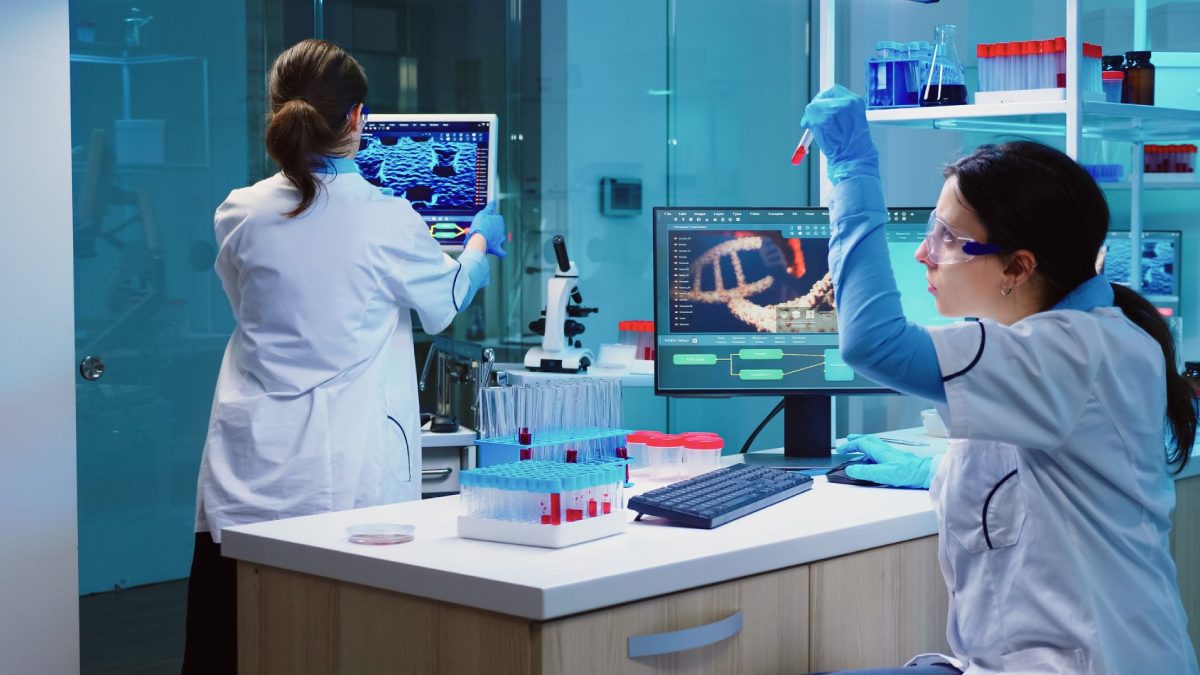Why Choose a Bachelor of Science in Medical Laboratory Science?
Choosing a Bachelor of Science in Medical Laboratory Science paves the way for a fulfilling career on the frontline of modern healthcare. This degree offers individuals a unique blend of science, technology, and patient care, equipping graduates with the necessary skills to make crucial contributions to patient diagnosis and treatment. Specialists in this field are the unsung heroes behind the scenes, interpreting vast arrays of data to assist physicians in their clinical decisions. If you’re considering a career that combines a love for science with the satisfaction of impacting patient health, then this might be the perfect path for you. Below, we delve into the numerous reasons that a bachelor’s degree stands out as an excellent educational choice.
Table of Contents
Exploring the Role of Medical Laboratory Scientists in Healthcare
Medical Laboratory Scientists (MLS) play a pivotal role in the diagnosis and management of diseases. Behind every test result that informs a clinical decision, there’s an MLS who’s ensured accuracy and reliability. From conducting complex blood tests to analyzing tissue samples, these professionals are key to uncovering the mysteries within the human body. Without their meticulous work, healthcare providers would lack the critical information needed to diagnose and treat patients effectively.
High-level expertise in the use of sophisticated laboratory equipment is a must for MLS professionals. Their capacity to operate advanced machinery for analytical purposes differentiates them from other healthcare workers. Moreover, they serve as gatekeepers of laboratory quality control, ensuring that each result accuracy reflects true physiological conditions. Not only does their precision support patient care, but it also furthers scientific research and public health initiatives.
The Cutting-Edge Curriculum of Laboratory Science Programs
Top-notch medical laboratory science programs offer curricula that mirror the rapidly evolving field of healthcare. They encompass a diverse range of subjects, from biological sciences and chemistry to biostatistics and clinical diagnoses. This diversity prepares students for the multifaceted responsibilities they will encounter as professionals.
Innovative teaching methods integrate theoretical knowledge with practical skills. Many programs use simulated lab experiences to provide hands-on learning opportunities. These experiences are critical to developing proficiency with complex lab equipment and procedures before transitioning to real-world settings. With the arrival of state-of-the-art educational resources, such as virtual labs and interactive modules, students now have unprecedented access to immersive learning tools.
Ensuring that educational programs remain relevant and current, accreditations and industry standards guide the framing of coursework and experiences. Accredited institutions, like the University of Cincinnati, offer online medical laboratory science programs that maintain stringent academic requirements while providing flexibility to students. Balancing rigor with accessibility, these bachelor’s degree programs affirm the quality of clinical laboratory education necessary to excel in this demanding profession.
Robust Career Opportunities With a Bachelor’s Degree in Laboratory Science
The healthcare industry’s dynamic nature assures a steady demand for medical laboratory scientists. With a Bachelor of Science in Medical Laboratory Science, graduates find themselves in a robust job market where the expertise is continually sought. Hospitals, diagnostic laboratories, research institutions, and the biotechnological industry offer vast opportunities for MLS professionals to apply their skills.
As the population ages and the prevalence of chronic conditions rises, the need for comprehensive diagnostic testing correspondingly swells. Individuals with a degree in MLS are well-positioned to meet this demand, serving in roles that directly affect healthcare delivery and outcomes. These roles are not limited to the laboratory bench; they often expand into areas of laboratory management, consulting, and education.
Another avenue that beckons MLS graduates is the field of research and development. They contribute significantly to medical research by collaborating with scientists in designing and executing laboratory experiments. With their deep understanding of pathophysiology and laboratory techniques, these professionals help in advancing medical treatments and technologies.
The Intersection of Theory and Practice in Medical Laboratory Science Education
The MLS curriculum is distinguished by its seamless blend of academic rigor and practical application. Educational programs emphasize both the theoretical underpinnings of biomedicine and the hands-on skills necessary for laboratory work. It’s through this balance that students gain a comprehensive understanding of their future roles in healthcare.
Practicums and internships serve as the crucial bridge between classroom learning and real-world experience. They provide students with exposure to working in actual healthcare settings, where they can apply their knowledge under the supervision of experienced professionals. This phase of education is essential in developing confidence and competence in performing diverse laboratory tasks.
Overall, a Bachelor of Science in Medical Laboratory Science offers an engaging and challenging educational journey, leading to a gratifying and indispensable career within the healthcare industry. Graduates are well-primed to enter a variety of roles where their contribution will be paramount in the diagnosis, treatment, and management of diseases, directly influencing patient outcomes and advancing medical science.

